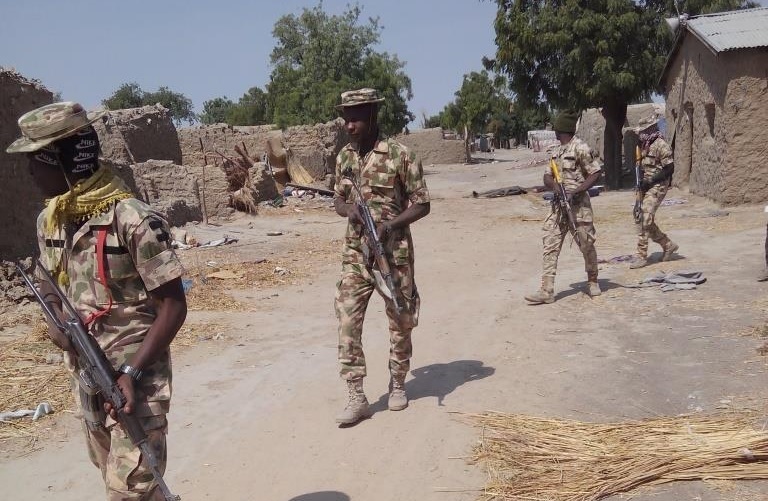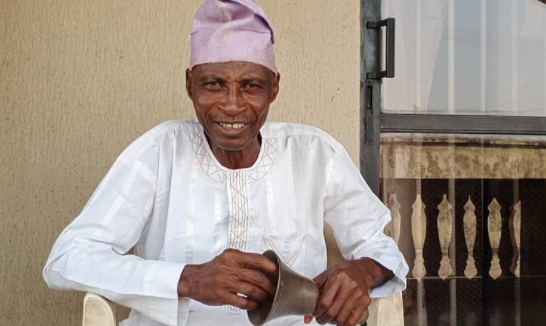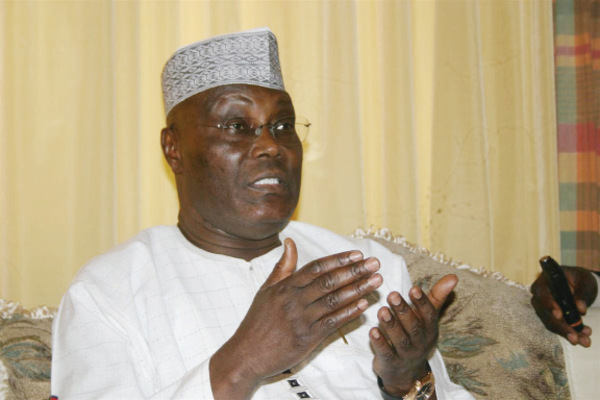The relics were unmistakable; skeletal remains of burnt houses, vehicles and shops, as well as destroyed fruits and foodstuffs littered Shasha community as some market women sat on the bare floor, mourning the loss of their income.
In the aftermath of the fight between Yoruba and Hausa in the Shasha area of Ibadan, losses cut across both groups; even leaders in the community had losses to count. But a week after the reign of anarchy, both groups came together under one roof to observe Jumat on Friday.
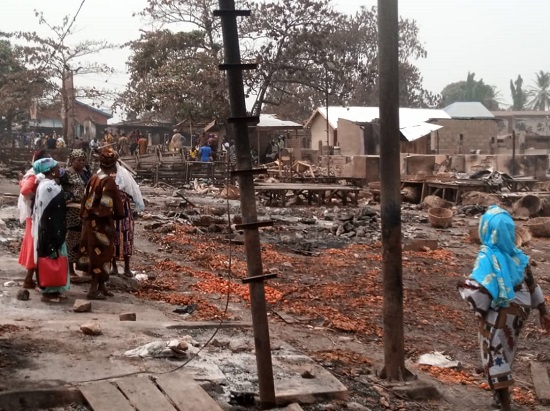
Rashidi Muraina, the chief imam who led prayers at the central mosque, Shasha market, told TheCable that the crisis could have been avoided if those concerned had been patient.
Advertisement
He recounted: “They said a Hausa man, who is a wheelbarrow pusher, spilled tomatoes in front of a pregnant woman shop. He also beat up the pregnant woman when she complained. Then a man, who was a cobbler, challenged the Hausa man to stop beating the pregnant woman.
“The Hausa man then produced a charm and hit the cobbler. The man died a few hours later at University College Hospital. The head of the Hausa community asked them to produce the killer and pay back the N30,000 deposited in the hospital before the cobbler died.
“The following morning, some people gathered at the shop of the late cobbler to mourn him but they were attacked by some Hausa youths, leading to a widespread crisis. Hundreds of houses and shops were burnt while food items worth millions of naira were destroyed. That is all we know about it. These Hausas live among us; some of them sleep in the market.
Advertisement
“My younger brother died in the mayhem. I ran away from my house and only returned a few days ago. The central mosque was burnt.”
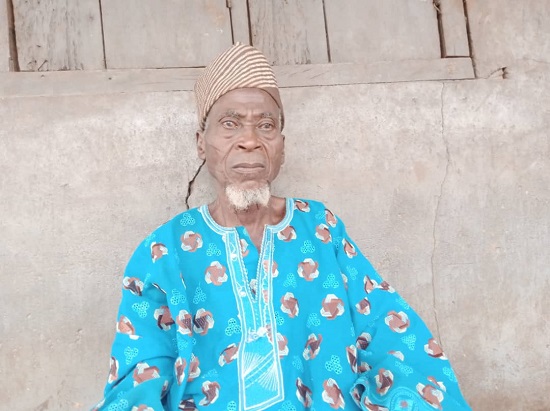
Tracing the root of the differences between the two ethnic groups in the area, the chief Imam said the tussle over who will be the Shasha market leader had always generated tension among traders in the market. According to him, the head of the Hausa community had always supported a Yoruba leader but his kinsmen were opposed to the idea.
“Seriki Shasha, the head of the Hausa community, is in support of picking a Yoruba man as the head of the market. He told his people that the land belongs to the Yoruba people and they are the host. But his people are at odds with him; they don’t want a Yoruba man to become market head. That crisis is the reason why we don’t have a market head,” he added.
Muraina stated that peace had always reigned in the market until the issue of market leadership tussle polluted the space. He however said that despite the crisis, the two camps came together to observe Jumat at the mosque they had earlier burned.
Advertisement
“During Jumat, thousands of people, Yoruba and Hausa gather there to pray. We have been living in peace except for the market leadership crisis. On Friday, a week after the fight, the number decreased but both Yoruba and Hausa communities forgot their differences to observe Jumat at the burnt mosque.
“We greeted ourselves and exchanged pleasantries. There are many Hausa men that married our daughters. The problem is in the past despite the pain and losses,” Murania said.
Yoruba appointed as market leader
At the house of Hamza Akinade, the Baale of Shasha community, traditional chiefs, displaced persons, and youths gathered to sympathise with him. Policemen stationed at the entrance of the street, where the Baale’s palace is located, refused to allow vehicles gain access.
The Baale told TheCable that peace had returned to his community, calling on Hausas who had fled to return to the market. He also thanked the governors who visited and promised to rebuild the market and houses burnt.
Advertisement
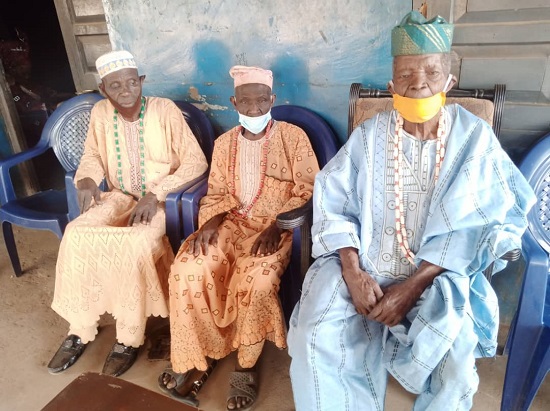
“Governors from Arewa states and Oyo state have come and made promises. They said they will come and rebuild the shops. They have also offered traders some relief materials. If you go into the burnt market, you will see them collecting the materials in groups. We call on Hausa people who fled to return to Shasha, there is no more fight. We are brothers and sisters,” said the community head.
Asked if the community was not sitting on a keg of gun powder with the leadership tussle in the market still unresolved, the Baale said he had met the Seriki Shasha and that a Yoruba man had been chosen to lead the market.
Advertisement
“The issue of market leadership is settled. I have spoken to Seriki Shasha, he produced the deputy market chairman and I produced the chairman who is a Yoruba man. We are yet to do the swearing-in. There is no more fight over the issue. The state governor and speaker of the house of assembly are in support,” the Baale stated.
Traders count losses
Alarape Isiaka sells bags of foodstuffs in the market. She had stocked the shop with new supplies a day before the crisis. It was impossible to believe that a shop full of goods was standing at the space she pointed to as her shop.
Advertisement
All that remained when TheCable visited on Saturday was ashes. According to her, she lost N4 million to the crisis.
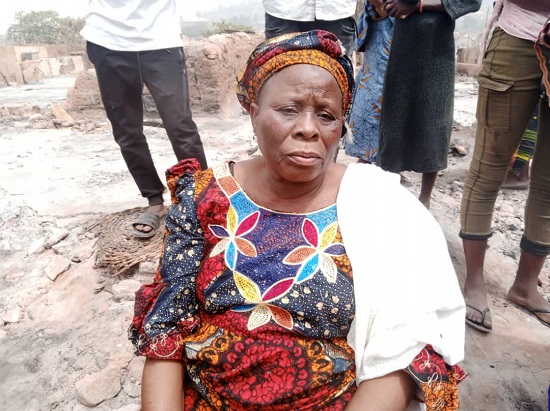
She said: “I sell wholesale goods. I have been selling here for the past 35 years but my hope relies on help from God and the government. I am a widow. I stocked the shop a day before the riot but I did not sell anything from it before it was burnt. I lost about N4 million.
Advertisement
“My house was attacked but people helped me to extinguish it. While we were coming out, we saw that the shops had been razed. We relate well with the Hausas in the market but this is a surprise.”
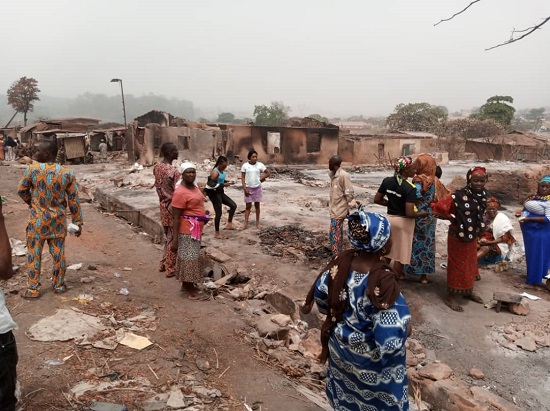
Fatima Awawu from Kano has lived in Shasha for 30 years. After the death of her husband five years ago, she was persuaded by a Yoruba friend not to relocate to the north after so many years in Ibadan. She is one of the Shasha traders who lost all they had.
“After observing prayers on that morning, I proceeded to my shop but I could not reach the shop because trouble began and everyone was running for dear life,” she said.
“I took shelter somewhere and watched from a distance as my shop was razed. I am a widow of five years. I have a Yoruba friend who supported me to start trading after my husband’s death. She was the one that persuaded me not to return to Kano. Now, I have nothing, our hose was burned by rioters.”
RUINS OF SHASHA
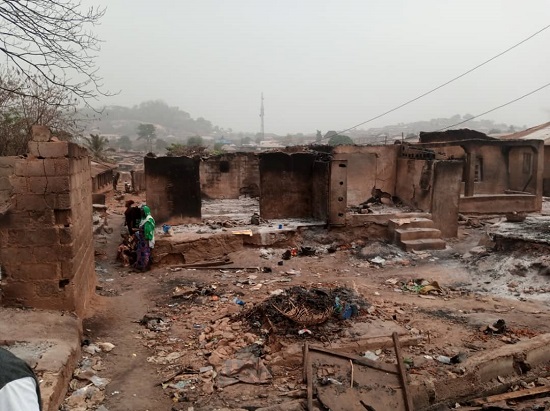
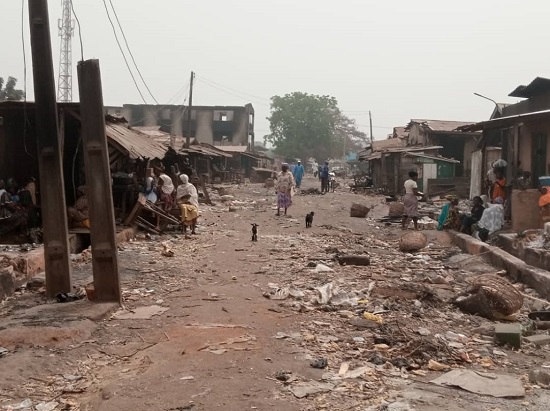
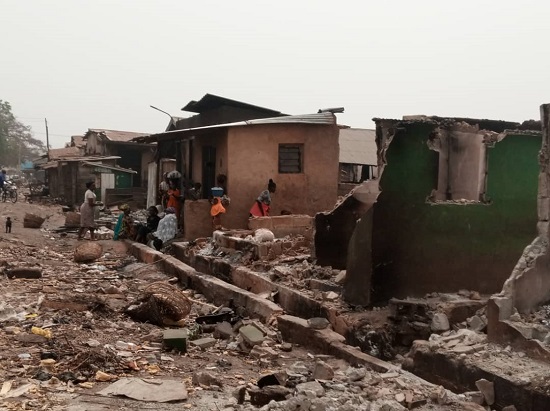
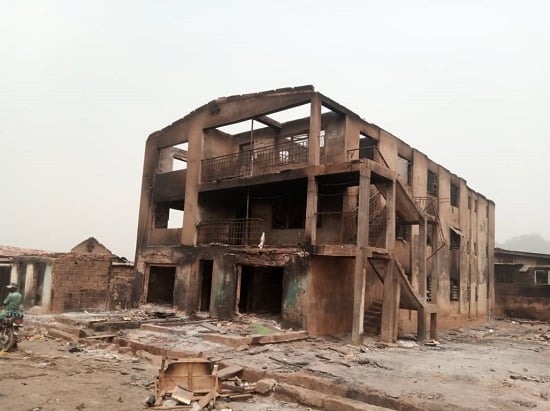


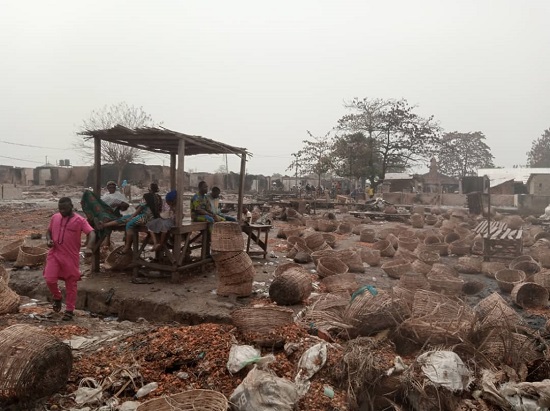
Add a comment

